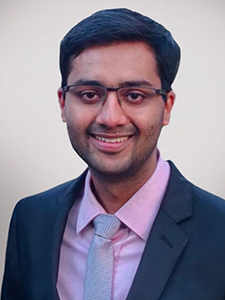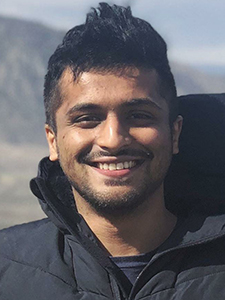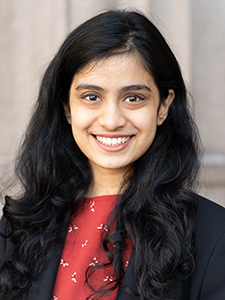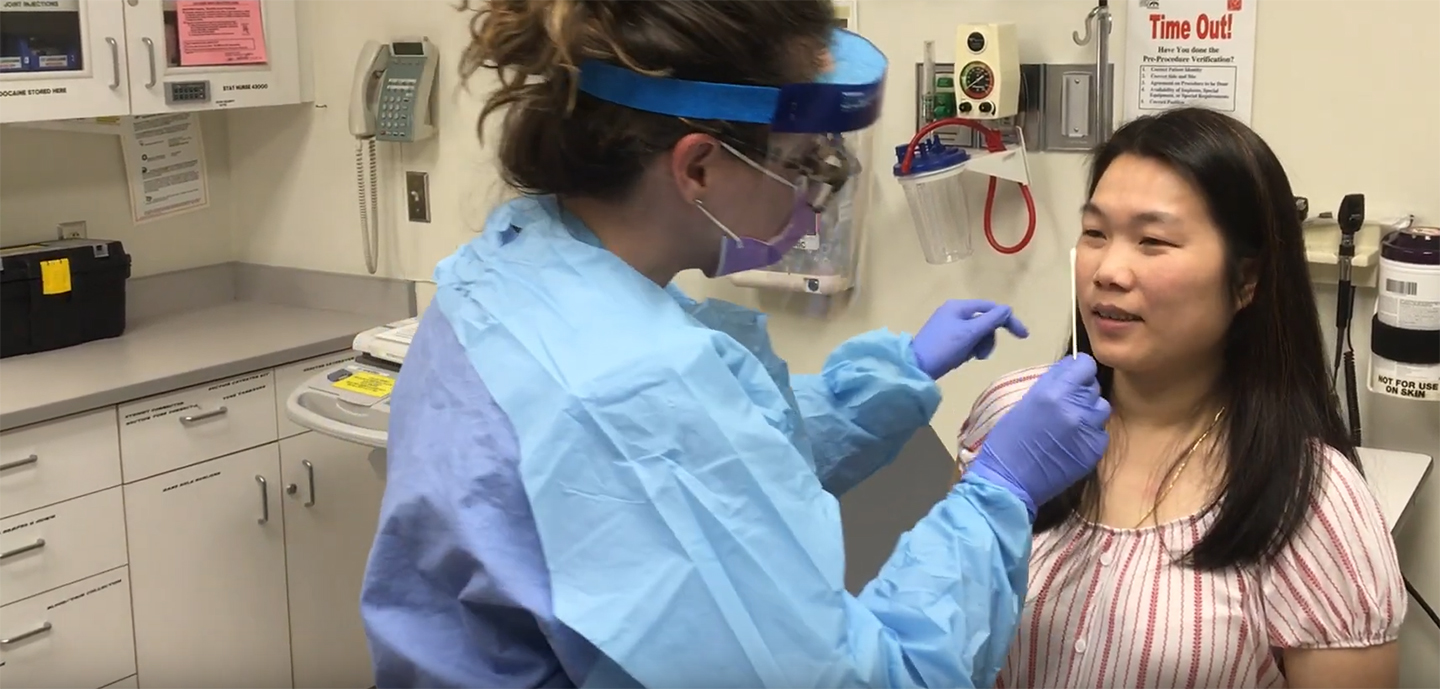About 10,000 patients walk through the doors of the International Medicine Clinic at Seattle’s Harborview Medical Center each year. The vast majority of the patients speak a primary language other than English.
The experienced reception staff has been able to guide these patients to their appointments or otherwise assist them. Sometimes, the receptionist knows the patient’s first language. Other times it’s a phrase here or there or a hand motion. If needed, the staff has access to on-call interpreters.
After the COVID-19 pandemic struck, the clinic made a priority of speeding up patient intake while limiting contact with staff. The clinic also wanted to make sure that patients were being asked the full list of COVID-19 screening questions.

So, Harborview turned to the University of Washington’s Information School. A team of students with the iSchool’s Master of Science in Information Management (MSIM) program has been working on an answer.
“The problem was pretty interesting,” said Rohan Khurana, one of the students. “You have these people who are mostly over the age of 60 and sometimes in their 70s and 80s, who have limited English-speaking proficiency. They faced problems conveying their own problems to the receptionists.
“Anything we create will help ease the burden of the pandemic. That motivated me toward this project.”
In addition to Khurana, other team members are Aniruddh Nathani, Nandini Mazumdar and Varun Kandukuri. This is their Capstone project, the culmination of their iSchool graduate program career.
The team developed a web application with a set of screening questions in seven languages — Amharic, Arabic, Cantonese, Oromo, Somali, Spanish and Vietnamese — to make the intake process more efficient.

The idea is the receptionists will hand an iPad to the patient, who answers the screening questions in their native language. Once the iPad is returned to the receptionist, the answers pop up in English. Patients with COVID-19 symptoms can be taken to an area away from the staff and other patients.
Kandukuri was surprised by how effective the staff is at working with patients despite the language barrier.
“Their No. 1 priority is to get the patients the care they need,” Kandukuri said. “The way it's set up right now, it's working. There's nothing wrong with it. They're just trying to make small improvements and this is one way to do it.”
A second part of the project was to help the patients with coronavirus symptoms in the exam rooms. The team created instructional videos with interpreters and hospital staff who walk the patients through the nose-swab testing and offer post-visit information. “An easy-to-scan QR code gives access to the videos for later review,” Nathani said.

“If the patient wants to have a look at those videos once they are back home, they can just scan the QR code, go back to the YouTube channel and play those videos again,” Nathani said.
Many of the International Clinic’s patients are former refugees and, due to their age, may be unfamiliar or less dexterous with technology, making it important to engage them through images and vocal prompts.
“We're trying to incorporate visual cues and perhaps auditory cues along with textual information,” Mazumdar said. “We are realizing that not all of the patients are familiar with the written language.”
While the main concern now is COVID-19, this can be an effective tool for any viral infection, such as the flu or a future pandemic, said April Karam, the clinic manager working with the iSchool team. It’s a small pilot project, but, if successful, it can be used in other parts of the UW Medicine system.

“The good news is that we can have a lot of user experience in a fairly short time period (at the International clinic),” Karam said. “If you're at another UW facility and one out of 10 patients that come in identify as speaking a language other than English, that would take a lot longer time to get a larger experience pool.”
The students started the MSIM program in 2019. They only attended in-person classes for the first quarter and a half before the pandemic forced online classes and limited contact with fellow students.
Even Capstone Sponsor Night in October, where they heard about potential projects, was held over Zoom. The idea of using their skills to work on a project with a community purpose, dealing with COVID-19, appealed to the group.
“This will impact health-care workers, cultural mediators, front-desk staff and patients and doctors running behind the scenes,” Mazumdar said. “We’re really excited to see how it can help in their endeavor to provide equitable access to health care.”
Watch a video of a non-English-speaking patient undergoing nasal swabbing at Harborview, captured by the Capstone project team:
View the team's project poster and video on their Capstone project page. To learn more about student projects, register now to attend Capstone 2021 online.
